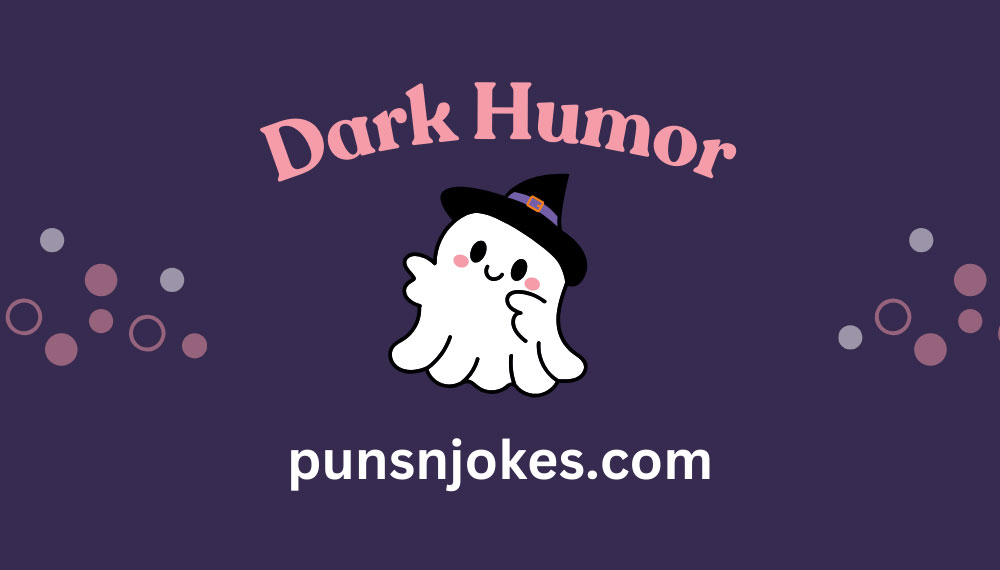
Navigating the murky waters of dark humor can be both thrilling and unsettling. As a connoisseur of wit that dances on the edge of taboo, I’ve often found solace in the twisted embrace of laughter that echoes through the shadows. Embracing the unconventional, dark humor dares us to explore the depths of our psyche with a smirk rather than a frown.
In this article, I delve into the art of finding light in the darkness through the lens of dark humor. From gallows jokes to morbid puns, I’ll explore how humor, even in its darkest form, can serve as a coping mechanism in a world filled with uncertainties. Join me on a journey where we confront the shadows with a chuckle, proving that laughter truly knows no boundaries.
Understanding Dark Humor
Dark humor is a nuanced form of comedy that delves into taboo subjects with a twist of irony. It challenges societal norms and explores the depths of human nature through unconventional jokes. Dark humor is not for everyone, but for those who appreciate it, it offers a unique perspective on the world.
Exploring the Power and Appeal of Dark Humor
Dark humor has a unique power to make us confront uncomfortable truths with a sense of levity. It allows us to address serious or sensitive topics in a way that is unexpected and thought-provoking. The appeal of dark humor lies in its ability to push boundaries and provoke a mix of emotions ranging from amusement to discomfort.
The Relationship Between Dark Humor and Shadows
Dark humor and shadows share a common theme of exploring the obscured or less visible aspects of life. Just as shadows are cast by light, dark humor often emerges as a response to challenging or bleak circumstances. The interplay between dark humor and shadows highlights the complexity of human experience and the ways in which we navigate the darker aspects of life with wit and irony.
Embracing the Darkness Through Laughter
Using Dark Humor as a Coping Mechanism
Dark humor serves as a coping mechanism in challenging times. It allows me to find humor in situations that might otherwise be overwhelming. By laughing at the darker aspects of life, I acknowledge them while also lightening the emotional load they carry.
Finding Light Within the Shadows of Dark Humor
Within the shadows of dark humor, there’s often a glimmer of light. I’ve found that amidst the irony and satire, there can be moments of clarity and insight. Embracing dark humor doesn’t mean ignoring the darkness; instead, it means illuminating it with a different perspective. It’s in these shadows that I discover hidden truths and a new way of looking at the world.
Unveiling the Cathartic Role of Dark Humor
Dark humor serves as a unique outlet for coping with adversity. Embracing it allows individuals to find humor in challenging situations that may otherwise seem overwhelming. It enables us to acknowledge the darkness in life while uncovering moments of clarity and insight within its irony and satire.
The Therapeutic Value of Laughter in Dark Humor
Laughing at the absurdities of life through dark humor can have a profound therapeutic effect. It enables individuals to release tension, reduce stress, and confront difficult emotions in a more light-hearted manner. The act of finding humor in darkness can serve as a powerful coping mechanism, offering a fresh perspective on life’s challenges.
Controversies and Ethics of Dark Humor
Navigating Boundaries in Dark Humor
As an aficionado of dark humor, I comprehend the delicate balance required when traversing its nuanced landscape. Dark humor dances on the edge of societal acceptability, daring to mock the very topics considered off-limits in conventional comedy. The essence of dark humor lies in its ability to challenge boundaries while maintaining a sense of wit and intellect.
The Role of Context in Dark Humor
In dark humor, context plays a pivotal role in determining the success or failure of a joke. The interplay between the joke’s content and the audience’s perception is a delicate art. What may be acceptable in one setting could be deemed offensive in another. Understanding the context in which dark humor is presented is crucial to ensuring that its impact is not lost in translation.
Addressing Ethical Concerns
Ethical considerations loom large in the realm of dark humor. While some view it as a tool for coping with life’s darker moments, others argue that it trivializes serious issues. The ethical implications of finding humor in tragedy are complex and multifaceted. It is essential to tread carefully and be mindful of the potential harm that insensitive humor can cause.
Impact on Mental Health
The intersection of dark humor and mental health is a topic of much debate. While some suggest that dark humor can provide a cathartic release and alleviate stress, others warn of its potential to desensitize individuals to serious issues. Understanding the impact of dark humor on mental well-being is crucial in evaluating its role in society and personal life.
Cultural Perspectives of Dark Humor
Exploring how different cultures interpret and accept dark humor sheds light on the diverse ways in which this comedic style is perceived worldwide. Dark humor’s reception varies significantly across cultures, with some societies embracing it as a coping mechanism for adversity, while others may find it offensive or inappropriate based on their cultural norms.
- American Culture: Dark humor is prevalent in American culture, often used to address sensitive topics such as tragedy, politics, and social issues. It can serve as a tool for satire and critique, with comedians like George Carlin and Dave Chappelle pushing the boundaries of what is socially acceptable.
- British Culture: The British comedy scene has a long history of dark humor, characterized by wit, irony, and self-deprecation. Shows like “Blackadder” and comedians like Ricky Gervais showcase the British penchant for dark and sarcastic humor.
- German Culture: In Germany, dark humor is known as “Gallows Humor” and is used as a coping mechanism for dealing with the country’s complex history. Comedians like Dieter Nuhr often tackle controversial topics with a blend of satire and dark comedy.
- Russian Culture: Russian humor has a darker edge, influenced by a history of hardship and political turmoil. Satirical shows such as “Kukly” have faced censorship due to their bold and often controversial take on current events.
- Japanese Culture: Dark humor in Japan, known as “Black Comedy,” is characterized by its absurdity and often nihilistic themes. Manga and anime like “Sayonara, Zetsubou-Sensei” explore dark and satirical humor in a unique cultural context.
Understanding how dark humor is perceived and accepted in different cultures provides valuable insights into the complexities of comedy as a universal language, highlighting both the shared and divergent perspectives on what is considered funny or offensive.
Conclusion
Exploring the depths of dark humor and its intricate relationship with shadows has revealed a world where comedy dances on the edge of societal norms. Navigating the complexities of taboo subjects with irony, dark humor offers a lens through which uncomfortable truths can be examined. Understanding the delicate balance required to wield dark humor effectively underscores the importance of context in crafting jokes that resonate with audiences. As we journeyed through different cultural interpretations of dark humor, it became evident that comedy truly knows no bounds, transcending borders and languages to provoke thought and spark laughter in the shadows.
